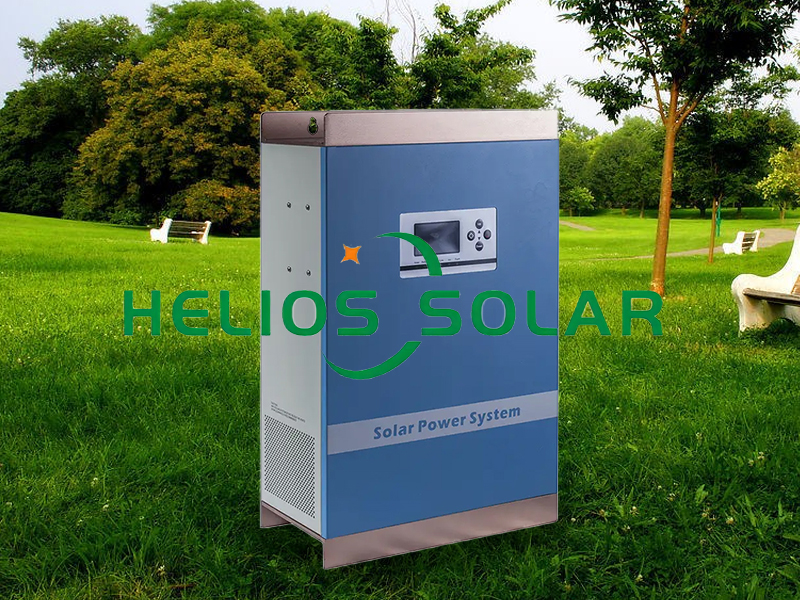In today’s world, renewable energy sources are becoming increasingly popular due to their numerous advantages over conventional energy sources. Solar energy is one such renewable energy source that has gained significant attention in recent years. In order to effectively utilize solar energy, inverters play a vital role. However, as technology advances, a new type of inverter has emerged called a hybrid inverter. In this article, we’ll explore the differences between inverters and hybrid inverters and learn why hybrid inverters are gaining momentum in the renewable energy market.
Functions of an inverter
Let’s first understand the basic functions of an inverter. An inverter is an electronic device that converts direct current (DC) into alternating current (AC). It is mainly used to convert DC power generated by solar panels into AC power to power various appliances and equipment in homes and businesses. In other words, the inverter acts as an intermediary between the solar panels and the electrical load.
Traditional inverters have been widely used in solar systems. They effectively convert DC power into AC power, ensuring a smooth flow of electricity. However, they lack the ability to store excess energy. As a result, any remaining electricity that is not consumed immediately is fed back to the grid or is wasted. This limitation has led to the development of hybrid inverters.
Functions of a hybrid inverter
As the name suggests, a hybrid inverter combines the features of a traditional inverter and a battery storage system. In addition to converting DC power to AC power, hybrid inverters are also able to store excess energy in batteries for later use. This means that when power demand is low or there are power outages, the energy stored in the battery can be utilized. Therefore, hybrid inverters can achieve greater solar self-consumption, reduce dependence on the grid and maximize energy efficiency.
One of the significant advantages of hybrid inverters is their ability to provide uninterrupted power even during grid failures. Traditional inverters are designed to shut down during a power outage, resulting in a loss of power to a home or business. Hybrid inverters, on the other hand, have built-in transfer switches that can seamlessly switch from grid power to battery power during a power outage, ensuring continuous power supply. This feature makes hybrid inverters ideal for areas with unreliable grid infrastructure or frequent power outages.
Another differentiating factor between inverters and hybrid inverters is the flexibility they offer in terms of energy management. Hybrid inverters are equipped with an advanced energy management system that allows users to set preferences and optimize energy usage. They offer options such as time-based scheduling, load shifting, and grid energy usage control. Users can customize the system to charge during off-peak hours when electricity prices are low, and discharge during peak hours when electricity prices are high. This flexibility helps reduce energy bills and maximize savings.
In addition, hybrid inverters support the concept of “grid-tied” or “grid-backed” systems. In a grid-tied system, excess solar energy can be sold back to the grid, allowing users to earn credits or further reduce their electricity bills. Traditional inverters do not have this capability because they lack the storage elements required for energy output. Hybrid inverters enable users to take advantage of net metering or feed-in tariff plans offered by utility companies.
In conclusion, while inverters and hybrid inverters play a vital role in converting DC power from solar panels into usable AC power, hybrid inverters possess additional features that make them the most popular renewable energy systems today’s first choice. Their ability to store excess energy, provide uninterrupted power during power outages, optimize energy management, and support grid-tied systems sets them apart from traditional inverters. As the demand for sustainable energy solutions continues to grow, hybrid inverters are undoubtedly at the forefront of the renewable energy market, providing efficient and cost-effective solutions for residential and commercial applications.
If you are interested in hybrid inverters, welcome to contact Radiance to read more.
Post time: Sep-28-2023


